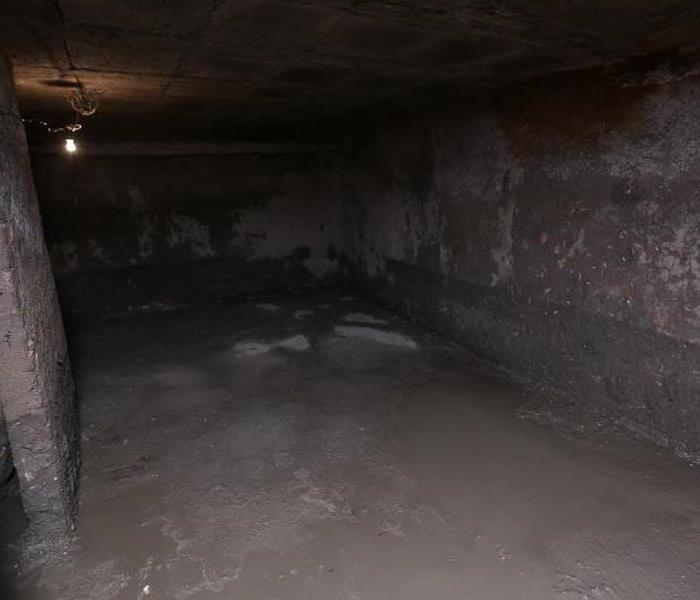What can cause a flooded basement?
3/28/2023 (Permalink)
Water damage is one of the most common types of property damage, and it can be caused by many different factors. Some are preventable, while others are not. Regardless of how they happen, water damage can have devastating effects on your home and belongings if you do not take care to address them immediately after they occur. Flooding in basements is a particular concern for homeowners, who rely on their basement to store some of their most valuable possessions as well as provide additional living space during times when all family members are at home full time. In this article we'll discuss some possible causes for flooding in basements so that you can better protect yourself from future incidents!
A foundation crack or other structural problem
If you notice cracks in the foundation of your home or basement, it could be a sign of a structural problem. Foundation cracks are often caused by water infiltration into the soil around the house and can lead to significant damage if left untreated. If you see any signs of cracking around your basement walls and floor, consult with an expert immediately, the sooner they're addressed, the easier they'll be to fix!
If you think there might be something wrong with your foundation but aren't sure where to start looking for problems, consider hiring an inspector who specializes in checking out foundations and other structures like basements. This way he or she will be able to identify potential issues before they become serious problems and help get them fixed quickly so everything stays solid underfoot
A broken sump pump or drain line
To prevent a flooded basement, you should make sure that your sump pump is connected to a drain. If it's not, it can cause water to back up in the house and flood the basement.
Also make sure that your sump pump is big enough for its job. If it isn't, then it may be unable to handle all of the water coming into your home and will overflow or break down, which will cause flooding. Finally, check out our guide on how to maintain and troubleshoot your sump pump so that everything runs smoothly!
A backed-up main drain or sewer line
If you suspect that your main drain or sewer line is backed up, there are a few ways to check. A good first step is to simply look for signs of flooding around the house. If there's water in places it shouldn't be, such as on the floor or outside in a yard, this could be an indication that something has gone wrong with your system. You'll also want to check along any exterior walls for leaks, if you see any discoloration or peeling paint near windows and doors, then there may well be some sort of issue going on underneath those surfaces.
If you find no visible signs of flooding around your home but still believe there might be some kind of problem with either your main drain pipes or sewer lines, it might help identify what caused them if we consider what other factors could have contributed.
A leak in your roof, wall, or foundation
If you have a leak, it's best to fix the problem as soon as possible. The longer you wait, the more damage can be done and the harder it will be to repair. Water damage can lead to a variety of other damages throughout your property if not addressed properly.
Flooded basements are often caused by leaks in roofs or walls, foundation cracks or settling ground around the house, or even bad plumbing work that has resulted in water seeping into your basement through cracks leading down there from upstairs bathrooms or kitchens.
Water damage can be prevented. If you suspect a leak in your home, it's important to act quickly and call a professional plumber. A leaking toilet or faucet may seem like an easy fix, but if left untreated for too long, it could lead to serious problems with your foundation or even mold growth. Always make sure that there are no cracks in the foundation before doing any repairs yourself. Give SERVPRO a call at the first sign of damage.





 24/7 Emergency Service
24/7 Emergency Service
